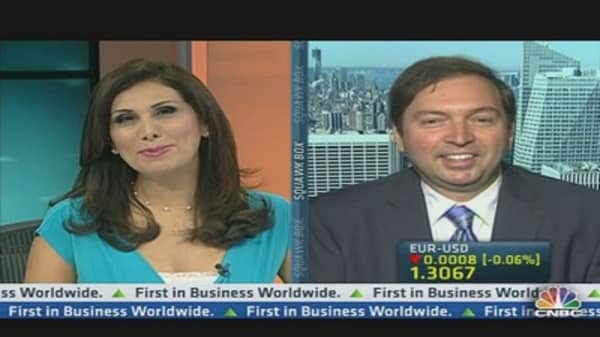The dollar-yen's fall below the key 100 mark could just be the start of a downtrend for the currency pair, analysts tell CNBC.
The dollar-yen fell as low as 98.86 on Monday on weak U.S. manufacturing data, down more than 4 percent from a four and half year high of 103.74 hit in May. On Tuesday the dollar-yen was trading around 99.
(Read More: Dollar-Yen at 89? It Could Happen by Year-End)
Ed Ponsi, managing director at Barchetta Capital Management, said yen weakness is losing momentum as support for recent moves by the Bank of Japan (BOJ) start showing "cracks."
"What happened last week was the IMF [International Monetary Fund] basically pulled their support or encouragement away from Japan for their recent activities, saying that the yen perhaps had fallen too far, that's a complete 180 [degrees turn] from what the IMF said before," Ponsi told CNBC Asia's "Squawk Box."
He was referring to senior IMF official David Lipton's comments on Friday that the yen's depreciation since last year is below a level consistent with Japan's medium to long-term economic fundamentals.
(Read More: IMF's Lipton: Yen Below Levels Consistent With Fundamentals)
Added to that, South Korea asking G-8 leaders to tackle the "unintended consequences" of "Abenomics," particularly a weaker yen on Monday, also dampened the dollar-yen trade, Vishnu Varathan, market economist at Mizuho Corporate Bank said in a note.
Since mid-November when Prime Minister Shinzo Abe first started talking about the need for radical monetary and fiscal policies to revive the economy, the yen has depreciated 25 percent against the U.S. dollar. And while a weaker yen makes Japanese exports more competitive against others, the global community has so far restrained from direct criticism of Japanese policies.
But according to Ponsi, Japan may be losing that kind of support from global agencies and countries, which it has counted on, and this could change the whole trajectory for the dollar-yen.




